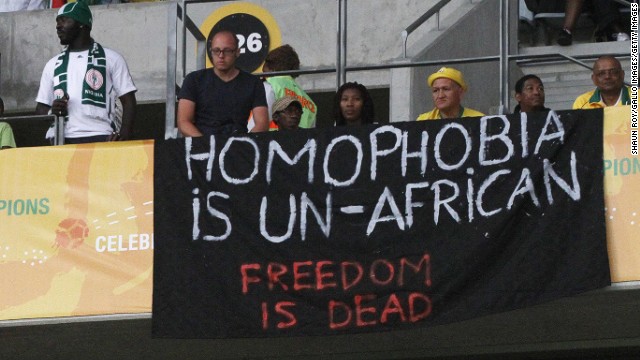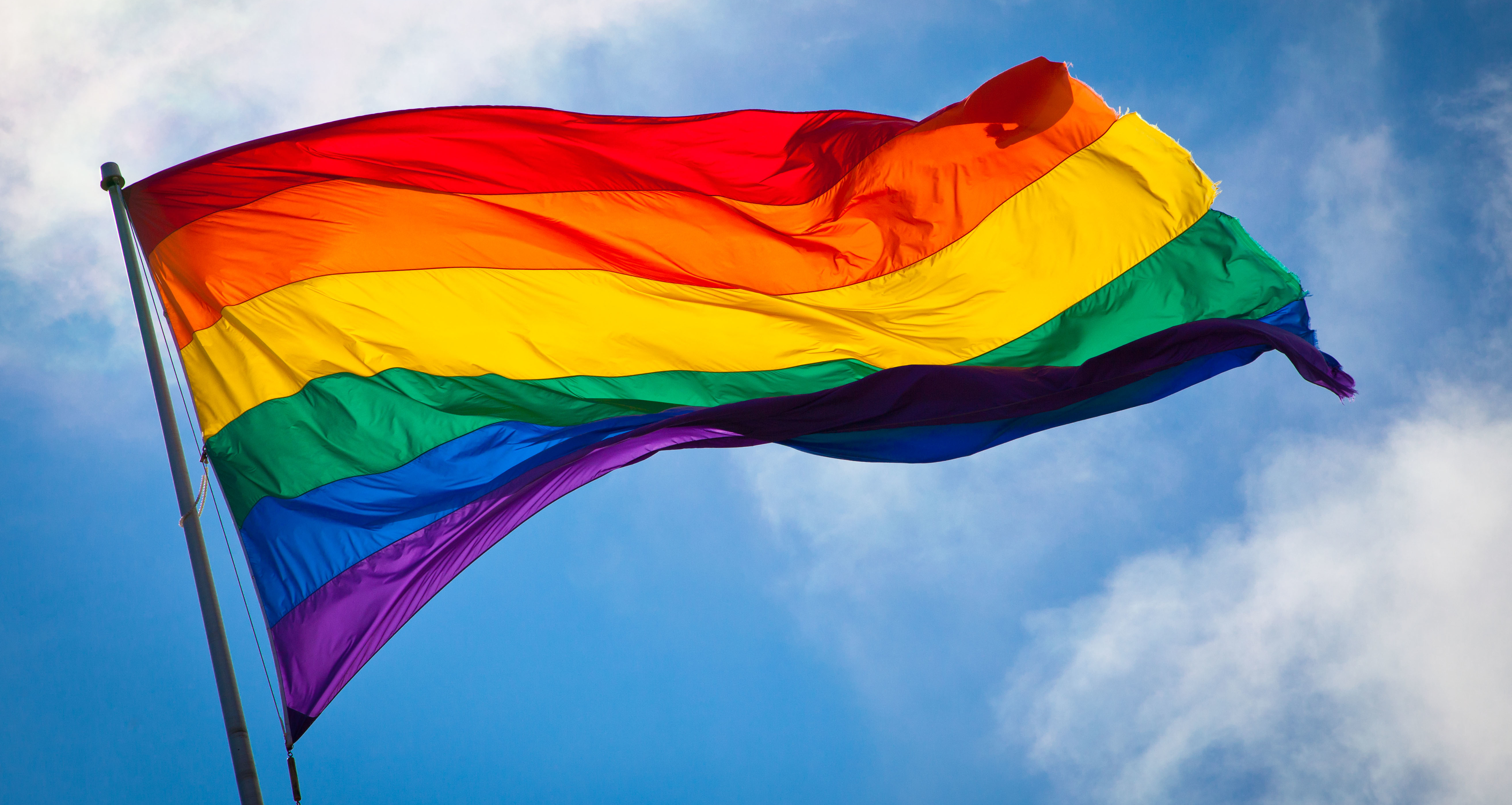“Homosexuality is incompatible with scripture,” asserted Stanley Ntagali, the archbishop of Uganda, in response to accusations by British Archbishops Justin Welby and John Sentamu condemning the persecution of human beings as “anathema.” Over the past decade various African nations such as Zimbabwe, Uganda and Nigeria have legally condemned homosexuality as a “filthy disease” that Robert Mugabe, President of Zimbabwe, claims “destroys nations.” Nigeria outlawed homosexuality on January 13, 2014, while Uganda’s parliament has passed a similar bill that is awaiting presidential endorsement. Ethiopia, on the other hand, does not permit MSM (men who have sex with men)-targeted HIV prevention. According to 2007 Pew Global Attitudes Project, 97 percent of Ethiopians believe homosexuality should be criminalized.

The homophobic sentiment in Nigeria is echoed by the nation’s criminal code. The section Offenses Against Morality states that a person who “has carnal knowledge of any person against the order of nature” is subject to imprisonment, while entering into a homosexual civil union carries a sentence of up to 14 years. According to Nigerian President Goodluck Jonathan’s spokesman, “This is a law that is in line with the people’s cultural and religious inclination.” Uganda, on the other hand, has fortunately withdrawn the death penalty as punishment for homosexual activity, replacing it instead with life sentence. African homophobia is frequently justified under the argument that homosexuality is just not African. It is an import of Western imperialists. We give you oil, you give us gays. All sarcasm aside, however, it is not simply homosexuality, the attraction between two men or women, that seems to be the issue here. The controversy is a product of a world where major political decisions are dominated by the fear of stereotypes, determined by financial worth and influenced by subtle religious politics.
In early January, the Anglican Church of England wrote to Anglican Church leaders in both Nigeria and Uganda denouncing new laws criminalizing homosexuality. Archbishop Ntagali responded by saying that it was “deeply troubling” that the main Church was trying to resurrect an issue that God had blatantly decreed sinful. The Ugandan Church had previously broken ties with the Anglican Churches of the United States and Canada over disputes regarding the issue of gay ordinations and same-sex blessings. Ntagali’s response touches upon a potential root cause for the African church’s retaliation against Western interference.
Historically, the Protestant Churches of Europe and the United Kingdom in particular have expressed disdain toward Coptic Christianity – the most prevalent form of Christianity in Africa. African Protestantism’s close association with the Orthodox Coptic Church has fostered patriotic bitterness toward the ‘enlightened’ ways of the European churches. The view that homosexuality is essentially un-African can be viewed in the light that pro-homosexual advocacy comes from a part of the world that has repeatedly disparaged Orthodox Christianity and continually interfered with African culture and politics. Resistance to the West may be causing anti-gay activists to mistakenly define ‘African culture’ in opposition to contemporary Western liberal thought instead of as an independent entity. Homosexuality ceases to be a question about the morality of same-sex relationships and becomes part of the larger trend of doctrinal opposition to the West – a trend that is undermined by the fact that promoting homophobia actually contributes to missionary work in the age of Christian imperialism.

Although the ostensibly religious stance against homosexuality is not rooted solely in Christian scripture, it is being used to propagate a preexisting sociopolitical agenda. The pastor, a political role of great respect and reverence in African society is an effective spokesperson to influence public opinion in favor of certain policies. The politicization of homosexuality is particularly evident in this continent-wide analysis of the legal status of homosexuality in various African countries. The map reveals that a majority of African coastal nations – previously ruled by Western imperialists – have outlawed homosexuality, while inland nations, less historically affected by Western imperialism, have deemed homosexuality legal. The geographical variation could indicate a residual anti-imperialist sentiment that evokes a bitter history of colonization and exploitation.
In the game of colonies, European nations emasculated African men by inflicting crushing defeats with superior technology. Slavery, too, objectified the African man as a mere tool of Western production. In the midst of Africa’s high unemployment rates and limited job availability, farming is one of the most common professions. Since this vital economic activity is traditionally a task for women, it too may undermine masculinity. In this vein, a crisis of masculinity underscores the vitriolic diatribes against homosexuality.
An explanation for the origins of the HIV virus lies in the alleged intercourse between a man and a chimpanzee in Western Africa. This theory then merged with homophobic discourse as homosexuality was held responsible for the perpetuation of HIV. African pastors and politicians would argue that there is no logic to legitimizing the act notoriously believed to have spread the virus. Stereotypes have positioned homosexuality as the African continent’s opponent and to ensure its illegalization could be politically and socially beneficial. A possible reason for the recent hysterical outburst against homosexuality may be a subconscious attempt to dispel the African continent of its social stereotypes and the rumored belief that the African continent has been hospitable to behaviors that have caused and spread HIV.
In a continent riddled with political instability, religious institutions often serve as the social and moral staple for the general public. African leaders have capitalized on the political influence of religious establishments to reaffirm their own power. Anti-gay rhetoric both fosters religious support and enhances nationalism by illustrating homosexuality as a remnant of inhumane Western imperialism. Although the criminalization of homosexuality has allowed Africa to differ from Europe in terms of policy, the question of whether basic human rights are culturally relative has no simple solution. The active persecution of harmless individuals not only undermines basic human life, but also distracts the African population from focusing on issues of greater concern such as poverty, unemployment and corruption.
